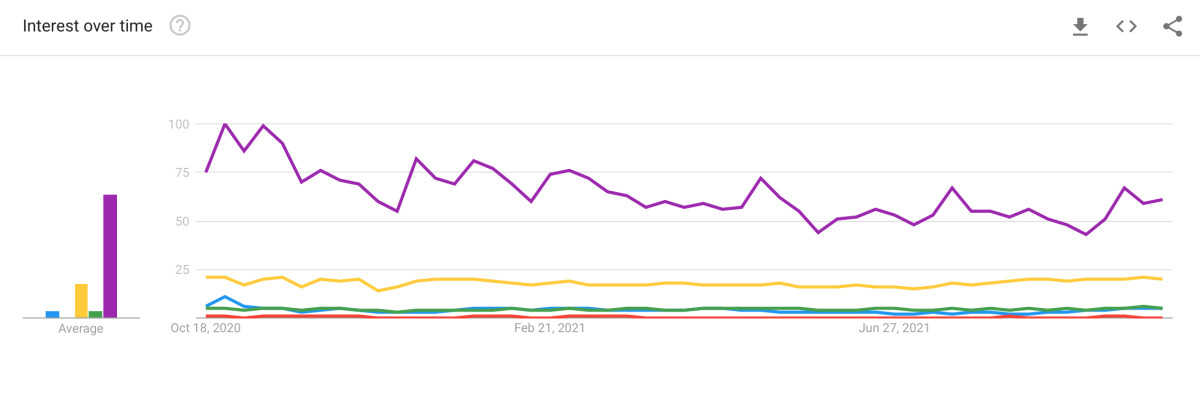
Ezra Bitterman is a freshman journalism major at MU. He is an opinion columnist who writes about elections and societal observations for The Maneater.
In the past 18 months, over half a million Americans died of COVID-19. Yet, you’d have no idea from looking at traditional economic indicators like the GDP or Dow Jones, which saw gains.
If you dig a little deeper, it’s quite logical why we would see economic growth in a time of suffering. Our economic indicators are connected to the well-being of our wealthiest citizens, not to the well-being of all citizens. If, as a country, we want to move forward in a way that prioritizes the well-being of all of us, we must reshape how we view the economy.
As a basic primer, GDP is the total amount of value created in an economy, and DOW is an aggregate of the stock performance of 30 large companies. These two indicators and employment rate are the most commonly referenced figures when it comes to evaluating the nation’s economic health.
In a sense, the GDP and DOW are helpful because they measure pure growth and output of our country’s businesses. However, they’re misleading as an economic catchall. For starters, the top 10% of families control 70% of the stock value, with the bottom 60% of families only having 7%. Thus, if the DOW sees significant rises, it’s not America as a whole getting wealthier but the wealthiest people gaining more.
GDP can be misleading as well. If the GDP is rising, our nation’s biggest businesses are growing, and as a country, we are producing more wealth. However, it’s not that cut and dry. Automation is threatening the jobs of millions of truckers, an industry that moves 71% of America’s freight.
There would be sizable job loss if trucking became automated; however, GDP and the DOW would miss it entirely. The company automating the trucks would be booming, and merchandise could be moved more efficiently, so we’d see economic growth.
Trucking could be a phenomenon similar to COVID-19. Many people suffer while a few get rich as our economic indicators cover it all up under the blanket of economic growth. America has become too attached to the idea of pure wealth as a measure for the nation’s health. I propose a new way of looking at the economy, one not based on the riches of Amazon but the well-being of truckers.
Before we can solve issues like automation, we have to prioritize looking at them. As the adage goes, you can’t fix a problem you can’t see. To do that, we have to shift our view from the things that show how rich we are to those that show how healthy we are.
Even pre-COVID-19, suicide rates went up, life expectancy went down, and drug overdoses and organ system issues occurred at higher rates. This is a uniquely American problem among the developed world: in places like England, life expectancy continues to rise. Indicators like suicide are economic because our citizens create productivity and growth. If those citizens can’t create growth because of poor health, our country suffers.
It’s not that America is uniquely ill-equipped to handle these issues—It’s that we don’t look at them. Issues like the opioid epidemic aren’t seen as economic issues, even though the well-being of our citizens is what allows for high levels of productivity and growth. Additionally, student loan debt is putting an entire generation underwater. How are young people supposed to blaze the next trail of entrepreneurship if they have too much debt to take business loans?
We have a too narrow view of what the economy is supposed to be. The economy is the engine that keeps this country running, and its citizens must be a central part of that. An expanded economic view that looks past the short term will allow us to focus on the opioid epidemic, suicide rate and student loan debt, which traditional metrics overlook.
Imagine if a record-high suicide rate were an economic indicator. If health costs were an indicator. We would have a different picture of our country, and politicians would be pressured to enact change. The narrow view of our economy would become unacceptable.
While It’s vital to focus on the economy’s human aspects, we also need a new view on wealth. If a higher share of stock value was in the hands of the less wealthy, gains in the DOW could benefit a more significant percentage of the population. We need to focus on how wealth has matriculated to the richest citizens, which is often hidden by pure stock gains.
It’s too easy to allow politicians to pander the same GDP and DOW figures repeatedly in the face of unprecedented hardship in America. We need to force a more holistic view of the economy, one that focuses on well-being so we can move forward together.
Edited by Cayli Yanagida | [email protected]